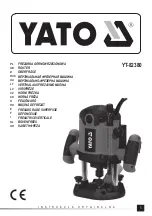
© Copyright IBM Corp. 2011
107
Chapter 9. Ports and Trunking
Trunk groups can provide super-bandwidth, multi-link connections between the
RackSwitch G8000 (G8000) and other trunk-capable devices. A trunk group is a
group of ports that act together, combining their bandwidth to create a single, larger
virtual link. This chapter provides configuration background and examples for
trunking multiple ports together:
•
“Trunking Overview” on page 107
•
“Configuring a Static Port Trunk” on page 109
•
“Configurable Trunk Hash Algorithm” on page 114
•
“Link Aggregation Control Protocol” on page 111
Trunking Overview
When using port trunk groups between two switches, as shown in
create a virtual link between the switches, operating with combined throughput
levels that depends on how many physical ports are included.
Each G8000 supports up to 52 trunk groups in stand-alone (non-stacking) mode, or
64 trunks in stacking mode. Two trunk types are available: static trunk groups
(portchannel), and dynamic LACP trunk groups. Each type can contain up to 8
member ports, depending on the port type and availability.
Figure 8. Port Trunk Group
Trunk groups are also useful for connecting a G8000 to third-party devices that
support link aggregation, such as Cisco routers and switches with EtherChannel
technology (
not
ISL trunking technology) and Sun's Quad Fast Ethernet Adapter.
Trunk Group technology is compatible with these devices when they are configured
manually.
Trunk traffic is statistically distributed among the ports in a trunk group, based on a
variety of configurable options.
Also, since each trunk group is comprised of multiple physical links, the trunk group
is inherently fault tolerant. As long as one connection between the switches is
available, the trunk remains active and statistical load balancing is maintained
whenever a port in a trunk group is lost or returned to service.
Switch 2
Aggregate
Port Trunk
Switch 1
Summary of Contents for RackSwitch G8000
Page 1: ...RackSwitch G8000 Application Guide...
Page 2: ......
Page 3: ...RackSwitch G8000 Application Guide...
Page 16: ...16 RackSwitch G8000 Application Guide...
Page 22: ...20 RackSwitch G8000 Application Guide...
Page 23: ...Copyright IBM Corp 2011 21 Part 1 Getting Started...
Page 24: ...22 RackSwitch G8000 Application Guide...
Page 54: ...52 RackSwitch G8000 Application Guide...
Page 55: ...Copyright IBM Corp 2011 53 Part 2 Securing the Switch...
Page 56: ...54 RackSwitch G8000 Application Guide...
Page 92: ...90 RackSwitch G8000 Application Guide...
Page 94: ...92 RackSwitch G8000 Application Guide...
Page 144: ...142 RackSwitch G8000 Application Guide...
Page 145: ...Copyright IBM Corp 2011 143 Part 4 Advanced Switch ing Features...
Page 146: ...144 RackSwitch G8000 Application Guide...
Page 148: ...146 RackSwitch G8000 Application Guide...
Page 182: ...180 RackSwitch G8000 Application Guide...
Page 184: ...182 RackSwitch G8000 Application Guide...
Page 212: ...210 RackSwitch G8000 Application Guide...
Page 258: ...256 RackSwitch G8000 Application Guide...
Page 286: ...284 RackSwitch G8000 Application Guide...
Page 294: ...292 RackSwitch G8000 Application Guide...
Page 298: ...296 RackSwitch G8000 Application Guide...
Page 310: ...308 RackSwitch G8000 Application Guide...
Page 311: ...Copyright IBM Corp 2011 309 Part 7 Network Management...
Page 312: ...310 RackSwitch G8000 Application Guide...
Page 320: ...318 RackSwitch G8000 Application Guide...
Page 332: ...330 RackSwitch G8000 Application Guide...
Page 334: ...332 RackSwitch G8000 Application Guide...
Page 345: ...Copyright IBM Corp 2011 343 Part 9 Appendices...
Page 346: ...344 RackSwitch G8000 Application Guide...
Page 357: ...Copyright IBM Corp 2011 Appendix C Notices 355 Taiwan Class A compliance statement...
















































